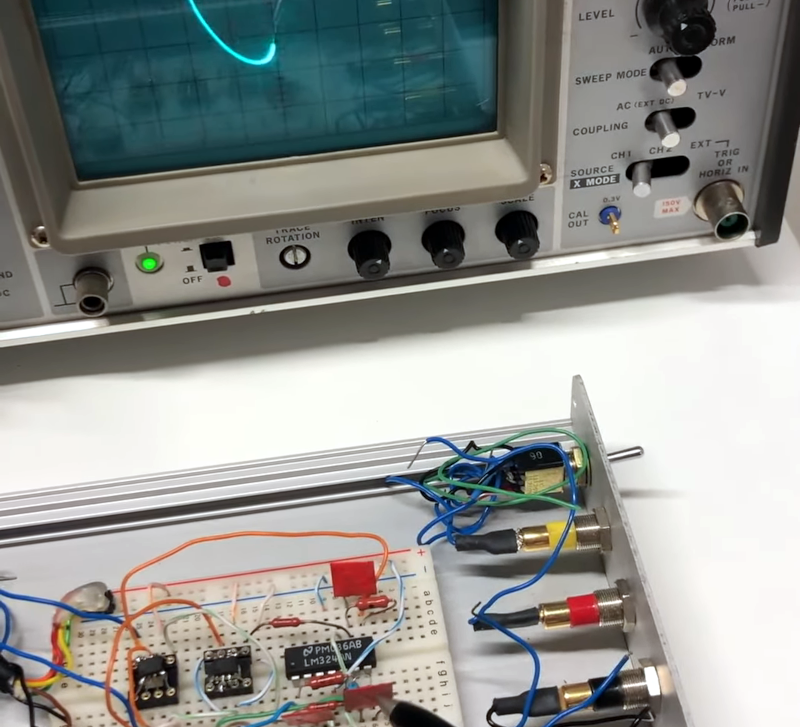[Janis Alnis] wanted to build an analog computer circuit and bought some multiplier chips. The first attempt used apparently fake chips that were prone to overheating. He was able to get it to work and also walked through some Octave (a system similar to Matlab) simulations for the circuit. You can follow along in the video below.
Getting the little multiplier chips into the breadboard was a bit of a challenge. Of course, there are a variety of ways to solve that problem. The circuit in question is from the always interesting [Glen’s Stuff] website.
From that site:
The Lorenz system, originally discovered by American mathematician and meteorologist, Edward Norton Lorenz, is a system that exhibits continuous-time chaos and is described by three coupled, ordinary differential equations.
So, the circuit is an analog solution to the system of differential equations. Not bad for a handful of chips and some discrete components on a breadboard. We’ve seen a similar circuit on Hackaday.io.
Check out our recent competition winners if you want to see op amps do their thing. Analog computers were a thing. They aren’t always that complicated, either.
















I love the idea of using analogue circuitry to generate attractors. The only trouble is that these days with digital oscilloscopes it’s not so easy to display the results as on a good old fashioned CRT. If anyone else wants to try this, Chua’s circuit was designed from the ground up to make producing a strange attractor with electronics (relatively) easy.
https://en.wikipedia.org/wiki/Chua's_circuit
Great work, and it’s fascinating to watch. I want to add drivers to mine andmake it run a Laser display.
The circuit I built was by Paul Horowitz, (of ‘Art of Electonics’ fame), it uses the MPY634 multiplier, available in the easier to manage PDIP14 form.
The chips are also included in the ASLKPRO teaching and evaluation kit, which is a bit of a ‘budget analogue computer on a board’, and you can link up the design on it, (as wel as a few other chaos circuits)
Paul Horowitz article:
http://seti.harvard.edu/unusual_stuff/misc/lorenz.htm
MY634, and link to ASLKPRO
https://www.ti.com/product/MPY634#pps